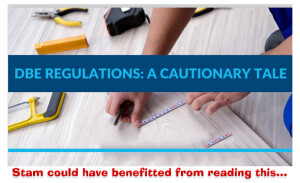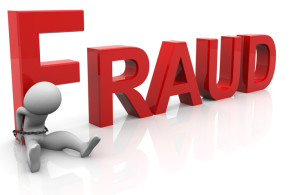We post news and comment on federal criminal justice issues, focused primarily on trial and post-conviction matters, legislative initiatives, and sentencing issues.

STAM’S SCAM SLAMMED
 The Supreme Court last Thursday upheld the fraud conviction of painting contractor Stamatios Kousisis. Stam got two government contracts that required him to work with disadvantaged business enterprises (DBEs), companies owned by racial minorities.
The Supreme Court last Thursday upheld the fraud conviction of painting contractor Stamatios Kousisis. Stam got two government contracts that required him to work with disadvantaged business enterprises (DBEs), companies owned by racial minorities.
Stam set up a scam, a “pass-through” DBE company that was supposed to be supplying paint but really was just a front. Stam bought the paint, sold it to the DBE and then bought it back for a small markup that the minority “front” man got to keep for his part in the scam.
The catch was that Stam’s bid – with the sham DBE “front” – was below everyone else’s. As a result, the government paid less than it would have if it had accepted a bid from one of the other contractors who put their bids together with a legitimate DBE. The government charged Stam with wire fraud under the theory that he had fraudulently induced Pennsylvania to save money by contracting with him based on his claim that he was working with a real DBE. Stam argued that under the fraudulent inducement theory, the government had to show Stam intended to harm the government financially, which the government could not do.
The 3rd Circuit held that DBE participation in the deal was “an essential part of the contract,” and that was good enough to establish wire fraud, even if the government did save money. Last week, the Supreme Court agreed.
 The Supremes held that wire fraud simply requires someone to “devise” a scheme to “obtain money or property” through “false or fraudulent pretenses, representations, or promises.” The fraudulent-inducement theory, Justice Barrett wrote, does that: By using “a pass-through entity,” she said, Stam “‘devised’ a ‘scheme’ to obtain contracts through feigned compliance with PennDOT’s disadvantaged-business requirement.” The goal of the scheme was to obtain “tens of millions of dollars” from PennDOT by “making a number of ‘false or fraudulent… representations’ — first about their plans to obtain paint supplies from [the DBE] and later about having done exactly that.”
The Supremes held that wire fraud simply requires someone to “devise” a scheme to “obtain money or property” through “false or fraudulent pretenses, representations, or promises.” The fraudulent-inducement theory, Justice Barrett wrote, does that: By using “a pass-through entity,” she said, Stam “‘devised’ a ‘scheme’ to obtain contracts through feigned compliance with PennDOT’s disadvantaged-business requirement.” The goal of the scheme was to obtain “tens of millions of dollars” from PennDOT by “making a number of ‘false or fraudulent… representations’ — first about their plans to obtain paint supplies from [the DBE] and later about having done exactly that.”
 Obtaining money or property must be the goal of the wire fraud scheme, SCOTUS said, but the scheme does not “depend[] on economic loss.” The unanimous Court (with three concurring opinions) acknowledged that the wire fraud statute potentially has a “broad” sweep, “[b]ut Congress enacted the wire fraud statute, and it is up to Congress—if it so chooses—to change it.”
Obtaining money or property must be the goal of the wire fraud scheme, SCOTUS said, but the scheme does not “depend[] on economic loss.” The unanimous Court (with three concurring opinions) acknowledged that the wire fraud statute potentially has a “broad” sweep, “[b]ut Congress enacted the wire fraud statute, and it is up to Congress—if it so chooses—to change it.”
Kousisis v. United States, Case No 23-909, 2025 U.S. LEXIS 1982 (May 22, 2025)
SCOTUSBlog, Court upholds federal fraud conviction even without economic harm (May 22, 2025)
– Thomas L. Root



